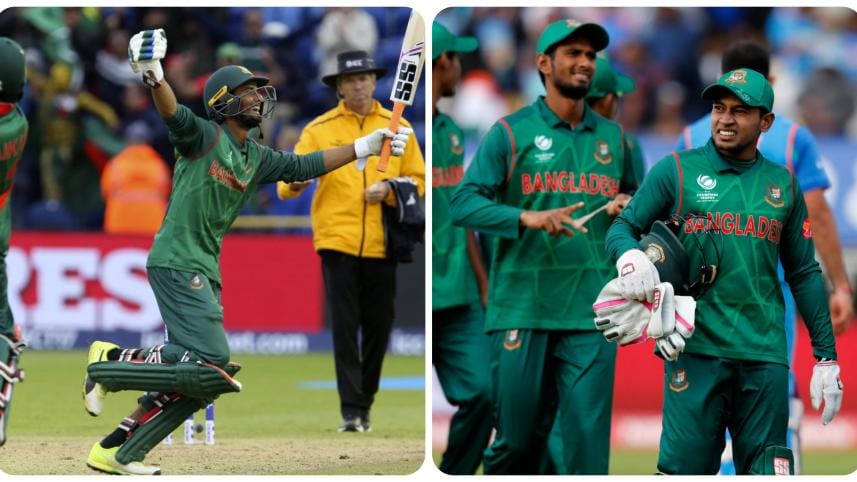Bangladesh in global events: A history of mediocrity

Bangladesh's relationship with the ICC Champions Trophy has been paradoxical from the get-go.
For instance, the inaugural edition in 1998, when the tournament was called the Wills International Cup, took place in Dhaka amidst tremendous fanfare and Bangladesh was lauded for getting this tournament off to a perfect start.
But even though Bangladesh was the facilitator, the hosts were not represented in the field as the Tigers, who were an associate nation at that time, were not eligible to participate as the tournament was reserved for only Test-playing nations.
After being a silent spectator in 1998, Bangladesh's on-field journey in the Champions Trophy began in the second edition in 2000 but it has been far from a smooth ride.
In five appearances in total, the Tigers have won just two out of 12 games and have a paltry win percentage of 16.667 in the Champions Trophy, lower than the other two ICC limited overs' tournaments – ICC ODI World Cup (32.65 percent) and the ICC T20 World Cup (26.667 percent).
So, statistically, the Champions Trophy is the worst ICC tournament for the Tigers.
However, if looked at from a different perspective, Champions Trophy could also be termed as the best ICC tournament for Bangladesh as their biggest ever success in a major men's ICC tournament at the senior level came at this very event.
In 2017, the previous edition of the competition, Bangladesh got pummeled by hosts England by eight wickets in the group-stage and were saved by the rain against Australia in a match they were on track to lose.
But then the Tigers pulled off a memorable five-wicket win over New Zealand in Cardiff in their last group phase match, courtesy of a mammoth 224-run partnership between Shakib Al Hasan and Mahmudullah. And that one win was enough for them to qualify for the semifinal of a marquee ICC event for the very first time.
However, reality came crashing down in the knockout match as India thrashed Bangladesh by nine wickets in the semifinal.
If Bangladesh reaching their biggest success in statistically its weakest ICC tournament does not seem paradoxical enough, there is also the fact that the win over the Kiwis that catapulted the Tigers to the semifinals was essentially their first win in the main competition of the Champions Trophy as their previous win, which had come against Zimbabwe in the 2006 edition, was in the qualifying round.
Bangladesh's other significant achievements in major ICC events is the quarterfinal finish in the 2015 ODI World Cup and reaching the Super Eight of the T20 World Cup last year.
For a country that has been a Test-playing nation for quarter of a century, where cricket has been played since the 1800s, which has hosted first-class cricket and Test matches even before independence, which has an incredible fan base and has a cash-rich board at the helm, these paltry results are simply not acceptable.
Over the years, many theories have been spewed to explain these poor results. From the lack of infrastructure, poor playing conditions at home, unlucky draws in major events and even elaborate conspiracies – there has never been a shortage of excuses.
But when fans see a country like Afghanistan galloping to the top of white-ball cricket, these excuses seem laughable.
The difference in mentality between Bangladesh and Afghanistan became clear as daylight during the two team's virtual quarterfinal clash in last year's T20 World Cup.
To reach the semifinals, Bangladesh needed to chase down 116 in 12.1 overs but instead of striving to make history, the Tigers tried to complete a meaningless win, while the Afghans played like bravehearts, won the bout and punched their ticket to the semifinals.
The way that the Tigers went about their business in that game against Afghanistan exemplifies their mentality -- going for the face-saving option instead of having a go at unprecedented success, which perhaps any other team would have opted for.
This line of thinking is the result of mediocrity that has seeped into the fabric of Bangladesh cricket. Until this stench of mediocrity evaporates, it's tough to be optimistic about Bangladesh's prospects in major events.



 For all latest news, follow The Daily Star's Google News channel.
For all latest news, follow The Daily Star's Google News channel.
Comments